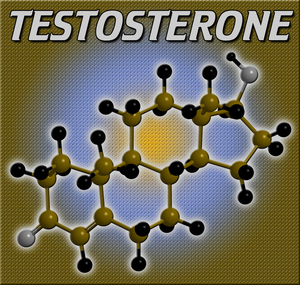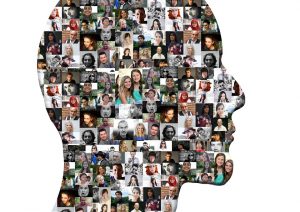 Testosterone Levels are strongly impacted by social pressures.
Testosterone Levels are strongly impacted by social pressures.
Studies have shown that Testosterone has strong effects on competitiveness, aggression, and dominance in both animals and humans.
There have been a wide variety of studies published in the last decade that explore the wide-ranging social causes of Testosterone fluctuation.
Researchers recently published an article exploring how voting outcomes impacted Testosterone Levels in a recent edition of the academic journal Psychoneuroendocrinology.
The 2012 Presidential Elections and Men's Testosterone Levels
Specifically, this study analyzed how the defeat of Mitt Romney by Barack Obama in the 2012 United States presidential election altered the Testosterone Levels of Romney voters in the wake of defeat.
Perhaps surprisingly, men that voted for Romney experienced a sharp boost in Testosterone upon seeing their chosen candidate lose the election.
There was also a notable correlation between the strength of the surge of Testosterone caused by the loss and the level of disdain that the men had for the winning candidate.
In terms of human psychology, American elections are largely about group dynamics. One's chosen party or candidate represents their in-group and the status of that group.
In many forms of competition (especially direct competition), winning leads to an increase in Testosterone Levels, and losing suppresses Testosterone. This simple rubric is known as the biosocial model of status. Political parties, 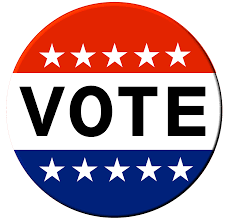 elections, and indirect competition make things a bit more complicated, however.
elections, and indirect competition make things a bit more complicated, however.
Elections Provide Insights Into Complex Group Dynamics
Elections are a fantastic way to evaluate how group dynamics and competition impact psychology. Voting for the winner confirms one's status, and losing elections can threaten that status.
Earlier studies have shown that voters in winning elections experience the surge in Testosterone predicted by the biosocial model of status.
The goal of this study was to examine how losing an election affected Testosterone Levels in men that voted for Mitt Romney and how changes in Testosterone in this group affected the perception of Barack Obama.
Smrithi Prasas and her associates hypothesized that losing an election would encourage voters to denigrate the winner in an attempt to regain lost social status.
Smrithi Prasas' study included 95 participants, 62 voted for Obama, and 33 voted for Romney. Her goal was to examine how the results of the election would motivate how the winner was perceived and how Testosterone affected those views.
Participants took at-home Testosterone tests the day preceding the election and the day after. They also took a test the night of the election. All participants took surveys about President Obama before the election and after.
How Did Obama and Romney Voters React to the 2012 Presidential Election?
Researchers found that after Obama was elected, Obama voters experienced lower Testosterone. Romney supporters, however, got a Testosterone Boost. A 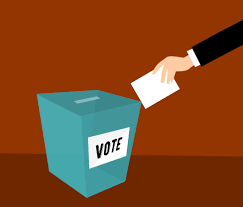 Romney voter's opinion of Obama decreased in correlation with the spike in Testosterone experienced from the loss.
Romney voter's opinion of Obama decreased in correlation with the spike in Testosterone experienced from the loss.
Romney voters that didn't experience as significant an increase in Testosterone had a softer stance on Obama's win.
Obama voters, on the other hand, experienced no changes in attitude toward the elected President related to their Testosterone.
Previous Study Offers Different Results and Further Insights
This study is not the first of its kind to be conducted. A similar study took place during the 2008 election between George W. Bush and John Kerry. In this study, the losing Kerry voters experienced a significant loss in Testosterone rather than the winning Bush voters.
This leads Prasas and her team to hypothesize that there are different underlying factors at play that led to opposite outcomes.
For example, the 2012 election was much tighter, whereas the 2008 election was decided more quickly.
The loss was more unexpected for Romney voters than Kerry voters, so the Testosterone boost might indicate a desire to reclaim lost social status after losing unexpectedly. There is also a chance that the underlying ideologies and associated psychological differences could impact how losses affected Testosterone.
The researchers believe that these hormonal variations may have a significant influence on how elected representatives are perceived by different groups 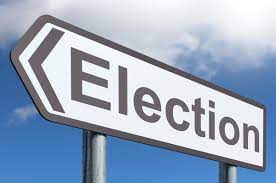 within the population.
within the population.
These two studies suggest that psychological/hormonal outcomes in these competitions are not binary, but are affected by many variables in how the competition plays out.
Contact Us Today For A Free Consultation

- Question: What Makes Men Sexy to Women? Answer: Low Stress, High Testosterone, Strong Immunity - Testosterone Therapy [Last Updated On: June 17th, 2024] [Originally Added On: February 29th, 2020]
- Low Testosterone Levels Cause Health Woes -- Testosterone Prescription [Last Updated On: May 14th, 2024] [Originally Added On: March 11th, 2020]
- Co-Sleeping with Baby Drops Men’s Testosterone Levels [Last Updated On: June 6th, 2024] [Originally Added On: March 21st, 2020]
- A Great Way to Boost Your Testosterone? Get Married! [Last Updated On: December 17th, 2023] [Originally Added On: April 1st, 2020]
- Five Myths About Low Testosterone And Testosterone Therapy — Testosterone Prescription [Last Updated On: April 29th, 2024] [Originally Added On: April 8th, 2020]
- Testosterone Reduces Group Think, Cooperation, and Less Sheep-Like Mentality [Last Updated On: August 8th, 2024] [Originally Added On: April 25th, 2020]
- Testosterone, Viagra not a winning combination for erectile dysfunction - Testosterone Prescription [Last Updated On: November 25th, 2024] [Originally Added On: April 30th, 2020]
- A Disturbing Trend: Testosterone Levels Falling Even Lower in Adolescent Males [Last Updated On: August 17th, 2024] [Originally Added On: May 31st, 2020]
- Low-T: Men With Low Testosterone Found More Likely to Die From COVID-19 AKA Coronavirus [Last Updated On: August 21st, 2024] [Originally Added On: June 12th, 2020]
- The Effects of Hypogonadism on Men and How to Fix It: Testosterone Replacement Therapy [Last Updated On: January 17th, 2024] [Originally Added On: June 14th, 2020]
- Testosterone Drives Ego, Reduces Cooperation — Testosterone Prescription [Last Updated On: February 29th, 2024] [Originally Added On: November 2nd, 2020]
- Testosterone Linked to Heart Disease -- Testosterone Prescription [Last Updated On: April 13th, 2024] [Originally Added On: November 18th, 2020]
- Acidosis: The Hidden Health Destroyer [Last Updated On: July 4th, 2024] [Originally Added On: January 20th, 2021]
- Testosterone Therapy Could Lower Diabetes Risk for Men – The Science is Promising! [Last Updated On: September 7th, 2024] [Originally Added On: February 19th, 2021]
- Who Would Have Thought? The Moon’s Cycles Affect Men’s Hormones Too! [Last Updated On: January 13th, 2024] [Originally Added On: April 23rd, 2021]
- Testosterone replacement therapy improves symptoms of metabolic syndrome - Testosterone Prescription [Last Updated On: November 24th, 2024] [Originally Added On: April 24th, 2021]
- The top ten testosterone booster supplements: A review [Last Updated On: November 12th, 2024] [Originally Added On: April 27th, 2021]
- Increase in testosterone drug use - Testosterone Prescription [Last Updated On: November 16th, 2024] [Originally Added On: April 29th, 2021]
- Men with higher testosterone tend to lie less, study suggests [Last Updated On: May 8th, 2024] [Originally Added On: April 30th, 2021]
- Environment trumps genes in testosterone levels, study finds - Testosterone Prescription [Last Updated On: November 13th, 2024] [Originally Added On: May 2nd, 2021]
- Testosterone shown to help sexually frustrated women- Testosterone Prescription [Last Updated On: November 18th, 2024] [Originally Added On: May 3rd, 2021]
- Testosterone therapy — good idea or not? - Testosterone Prescription [Last Updated On: November 24th, 2024] [Originally Added On: May 5th, 2021]
- With testosterone, it's 'my way or the highway': UK study - Testosterone Prescription [Last Updated On: November 17th, 2024] [Originally Added On: May 9th, 2021]
- Too much testosterone makes for bad decisions, tests show - Testosterone Prescription [Last Updated On: November 25th, 2024] [Originally Added On: May 10th, 2021]
- Your Life on Testosterone: Overly Sure, Unwilling to Listen to Anyone [Last Updated On: February 4th, 2024] [Originally Added On: October 17th, 2021]
- Frustrating Factors That Suppress Testosterone Levels [Last Updated On: July 31st, 2024] [Originally Added On: July 10th, 2022]
- Testosterone and Human Behavior: Hormone Promotes Prosocial Behaviors [Last Updated On: October 4th, 2024] [Originally Added On: August 15th, 2022]
- Guide to Boosting Your Testosterone Levels Naturally [Last Updated On: October 10th, 2024] [Originally Added On: August 16th, 2022]
- Testosterone for TRT Could Someday Be Supplied from a Single Skin Cell [Last Updated On: October 9th, 2024] [Originally Added On: September 5th, 2022]
- The Testosterone Controversy: To Take or not to Take? [Last Updated On: October 20th, 2024] [Originally Added On: November 8th, 2022]
- Think Testosterone is for Men Only? THINK AGAIN! [Last Updated On: October 14th, 2024] [Originally Added On: November 16th, 2022]
- Testosterone Recruits Immune Cells That Fight Cancer [Last Updated On: September 4th, 2024] [Originally Added On: November 22nd, 2022]
- Kevin Nash Defends The Rock’s PED Use after Joe Rogan’s Comments [Last Updated On: November 1st, 2024] [Originally Added On: December 15th, 2022]
Word Count: 707










